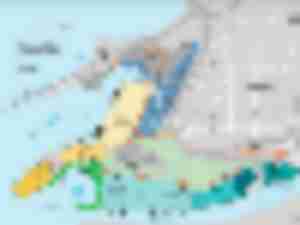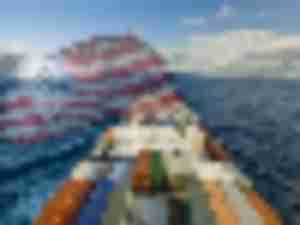Necessity drives changes in air cargo industry
Necessity is said to be the mother of invention and, if nothing else, the Covid-19 pandemic, staff shortages, insufficient air cargo capacity, extended and delayed transit times, low ocean freight capacity, sailing schedules in chaos, and the war in Ukraine have revealed the truly adaptive nature of the air cargo industry.
AGTC hails imminent passage of Ocean Shipping Reform Act
The Agriculture Transportation Coalition (AGTC) hailed the imminent enactment of the Ocean Shipping Reform Act (OSRA) of 2022, expected to be signed into law by President Biden on June 16th, which it said will help U.S. exporters ship more agricultural cargo abroad.
Inflation is Inevitably Affecting the Global Supply Chain System: The Good, The Bad, and The Ugly
The prevalence of global inflation, at least over the course of the past year, has been significantly on the rise. In fact, according to the International Monetary Fund (IMF), inflation rates around the world have recently reached an average of 8.7 percent.
Port of South Louisiana & Waterways Council Inc say U.S. infrastructure upgrades vital
New U.S. infrastructure funding will improve grain and energy shipments transported along the inland waterways thanks to improved port, lock, and dam upgrades, according to Paul Matthews, executive director of the Port of South Louisiana
Great Lakes Ports’ Director outlines infrastructure priorities
New infrastructure investments will be needed to support U.S. Great Lakes ports and their expansion, says Steve Fisher, executive director, American Great Lakes Ports Association (AGLPA).
Foul Ball: Commission report overturns earlier rejection of Oakland A’S Howard Terminal application
On May 2nd, the Bay Conservation Development Commission (BCDC) staff recommended overturning an earlier Seaport committee vote that rejected the Oakland A’s application for redesignating the Howard Terminal site for real estate use.
QDC’s King outlines developments at Quonset Business Park
Steven King is the managing director of Quonset Development Corp (QDC) which manages Quonset Business Park (QBP) a 3,200 acre business park located on Quonset Point, (North Kingstown) Rhode Island. Besides the 200 plus companies located within the QBP is the Port of Davisville, one of the country’s top auto ports with numbers over 300,000 in most years, although with COVID and other disruptions the Port slipped under 200,000 in 2021.
Could marine highway ships and Port of Oakland relieve LA/LB port congestion?
Paul Snell, chief executive officer, British American Shipping, Long Beach, California, suggested that a coastal feeder ship service linking the Ports of Los Angeles, Long Beach and Oakland could relieve Southern California port congestion.
Could U.S. built and crewed ships help U.S. exporters?
The United States is facing growing challenges exporting agricultural products abroad at a time when it lacks the U.S. flagged vessels to support international trade, according to panelists addressing a Maritime Day symposium entitled “Do U.S. Exporters Need U.S. Ships?”
Staying liquid - the new rules of cash flow optimization in transportation
Controlling Cash to Drive Efficiencies and Better Returns in a Performance Hungry Market
© Copyright 1999–2024 American Journal of Transportation. All Rights Reserved










